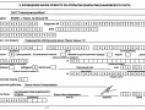Most likely: to put commas or not? Decimal fraction operations Comma 3 0
Comma between independent sentences, combined into one complex, and between clauses related to the same main
A comma is placed between sentences combined into one complex sentence by means of repeated conjunctions and ... and, neither ... nor, or ... or etc.
P., for example: And everything is sick, and the head is spinning, and the boys are bloody in their eyes ... (Pushkin).
A comma is placed between sentences combined into one complex sentence by means of conjunctions and, yes (in the meaning of "and"), yes and, or, or, as well as conjunctions a and yes (in the meaning of "but"), for example: The sea murmured dully, and the waves beat furiously and angrily on the shore (M. Gorky).
Note. A comma before the unions and, yes (in the meaning of "and"), or, or is not put if the sentences they connect have a common minor member or a common subordinate clause. The presence of a common minor member or a common subordinate clause tightly connects such sentences into one whole, for example: Trucks were moving along the streets and cars were racing. Every morning a boat departed from the pier or a boat sailed away. The stars were already beginning to fade and the sky was turning gray when the carriage drove up to the wing of the house in Vasilievsky (Turgenev).
A comma is placed between independent sentences, combined into one complex without the help of unions or through unions, but, nevertheless, nevertheless, only in those cases when such sentences are closely related in meaning, for example: The horses started moving, the bell rang, the wagon flew (Pushkin).
A comma is placed between subordinate clauses related to the same main one. Father warmly and in detail told me how many birds and fish are found, how many different berries will be born, how many lakes, what wonderful forests grow (S. Aksakov).
If such subordinate clauses are connected by means of single conjunctions and, yes (in the meaning of "and"), then no punctuation mark is placed between them, for example: She dreamed aloud about how she would live in Dubetchnya and what an interesting life it would be (Chekhov ).
The expression "most likely" causes many difficulties with the placement of punctuation marks, since it may or may not require the separation of commas depending on the role in the sentence (context). However, learning to determine whether isolation is necessary in a given situation is a simple matter.
Introductory construction
For the correct placement of punctuation marks, you need to determine whether the expression "most likely" is an introductory phrase.
What does it mean?
An introductory word (or a stable combination of words) is a construction that is not a member of a sentence and is not syntactically related to any of its members. It is impossible to ask a question to her either from the subject, or from the predicate, or from secondary members, it is also impossible to ask a question from her to other members.
Introductory words can, for example, convey the emotional coloring of a sentence ("fortunately", "unfortunately"), express confidence ("of course", "of course") or uncertainty ("probably", "maybe") of the author, or indicate a link to someone's opinion ("in my opinion", "they say").
"Most likely" is highlighted with commas if this is an introductory phrase with the meaning of uncertainty, since an introductory word or expression always requires isolation.
How to determine this?
- The introductory phrase can be rearranged to any part of the sentence without losing its meaning. If "most likely" is at the beginning of a sentence, then it can be used at the end or in the middle, while the essence of the sentence remains unchanged.
- The introductory turnover can be replaced by any other synonymous introductory construction. You should try to replace the introductory expression "most likely" with the introductory word "probably" or the construction "maybe". If "most likely" is the introductory word, then the degree of confidence will change, but the meaning of the statement will not disappear.
- The introductory turnover can be excluded. The sentence must remain grammatically correct.
If the conditions are met, "most likely" is separated by commas.

Combination of adjective and pronoun
The word "more likely" can be a comparative adjective and be part of a predicate. Then "all" - this dependent word is also in the composition of the predicate, is a definitive pronoun.
How to determine this?
It is enough to check the same three conditions.
If the conditions are not met, that is, when discarding, moving to another part of the sentence or replacing with introductory constructions "maybe", "probably" the sentence loses its meaning or becomes grammatically incorrect, "most likely" is not separated by commas.

Examples of
Consider two similar proposals:
This behavior was most likely predicted in advance.
This behavior was most likely.
In the first case, we move, in order to understand whether commas are needed, to the beginning of the sentence "most likely":
Most likely, this behavior was predicted in advance.
We replace the phrase with "probably":
This behavior was probably predicted in advance.
Now let's try to discard the phrase in question:
This behavior was predicted in advance.
In all three cases, the sentence retained its meaning and remained grammatically correct. It can be concluded that in this sentence "most likely" is an introductory construction. Separate with commas on both sides. Of course, except in cases at the very beginning or end of a sentence, when a comma on one side is enough.
Let's move on to the second sentence.
Move "most likely" to the beginning of the sentence.
Most likely this behavior was.
As you can see, the result is a phrase that is extremely inconvenient for perception. But to be sure, let's check the other two signs.
Let's replace it with "probably":
This behavior was probably.
The meaning is completely lost.
If we discard "most likely", then it remains:
This behavior was.
In this case, too, the meaning is completely lost.
Conclusion: in the considered sentence, "most likely" is not an introductory word. This means that we do not separate "most likely" with commas.
Division by a decimal is reduced to division by a natural number.
The rule for dividing a number by a decimal fraction
To divide a number by a decimal fraction, it is necessary to move the comma in both the dividend and the divisor by as many digits to the right as there are in the divisor after the decimal point. After that, divide by a natural number.
Examples.
Division by decimal:
To divide by a decimal fraction, you need to move the comma in both the dividend and the divisor by as many digits to the right as there are after the decimal point in the divisor, that is, by one decimal place. We get: 35.1: 1.8 = 351: 18. Now we perform the division with a corner. As a result, we get: 35.1: 1.8 = 19.5.
 2) 14,76: 3,6
2) 14,76: 3,6
To perform the division of decimal fractions, both in the dividend and in the divisor, we transfer the comma to the right by one sign: 14.76: 3.6 = 147.6: 36. Now we perform a natural number. Result: 14.76: 3.6 = 4.1.
To perform division by a decimal fraction of a natural number, it is necessary both in the dividend and in the divisor to transfer as many digits to the right as there are in the divisor after the decimal point. Since in this case the comma is not written in the divider, we fill in the missing number of characters with zeros: 70: 1.75 = 7000: 175. Divide the resulting natural numbers with a corner: 70: 1.75 = 7000: 175 = 40.
4) 0,1218: 0,058
To divide one decimal fraction by another, we transfer the comma to the right in both the dividend and the divisor by as many digits as there are in the divisor after the decimal point, that is, by three decimal places. Thus, 0.1218: 0.058 = 121.8: 58. Division by a decimal fraction was replaced by division by a natural number. We divide by a corner. We have: 0.1218: 0.058 = 121.8: 58 = 2.1.
 5) 0,0456: 3,8
5) 0,0456: 3,8
The comma usually indicates that the thought is incomplete. It is placed only inside a sentence and serves to separate simple phrases within complex ones. As linguists point out, the comma in its significance often corresponds to other punctuation marks, which are placed only inside phrases. When opposing or matching, the comma is replaced by a dash, colon, or semicolon.
The comma is significant in its polysemy and may require different intonation in different cases. The comma requires raising the voice in front of it on the stressed word.
For example:
“Days went by, | and the disputes of a crucian carp with a ruff and the end could not be seen. (Saltykov-Shchedrin "Carp the idealist")
The stress word preceding the comma may not necessarily be immediately before the comma, but the raising of the voice falls precisely on the stressed word.
For example:
“Early willow blossoms, | and a bee flew to her, | and the bumblebee hummed, | and the first butterfly folded its wings. " (M. Prishvin "In the land of grandfather Mazay")
Stanislavsky writes that with a comma one wants to “bend the sound upward” and leave “for a while the top note to hang in the air. With this bend, the sound is transferred from the bottom up, like an object from the lower shelf to a higher one ... the most remarkable thing in nature with a comma is that the hand, precisely raised for warning, makes the listeners patiently wait for the continuation of the unfinished phrase. "
When listing, the comma requires repeated, almost the same type of voice rises on each of the listed words, and on the last, the voice drops to a point.
For example:
“There is no shortage of nuts, | lingonberry | and blueberries. " (A. Pushkin "History of the village of Goryukhina")
When the comma is not "readable". The comma is not separated by a pause in oral speech.
1) Before or after the introductory word.
Without pauses, such introductory words as "of course", "probably", "probably", "probably", "it seems", "maybe", "however", "what good", "in my opinion" , "Unfortunately", "finally" and so on.
For example:
“And yet Klavdia was probably removed from the foremen a dozen times, and even now she was officially listed as“ interim ”. (F. Abramov "Around the Bush")
“The heroine of this novel, | needless to say, | there was Masha. " (L. Tolstoy "Boyhood")
2) Between the conjunction "and" and the adverbial turnover.
For example:
"The Chechen looked at him and, slowly turning away, began to look at the other side." (L. Tolstoy "Cossacks")
3) Before the participle, if it comes after the word being defined.
For example:
«A person (,) loving animals, | - a poet ". (Yu. Olesha "Not a day without a line")
In the above example, the definition is a unity with the word being defined: not just "man", but "man who loves animals."
But depending on the context, this rule may be violated.
4) Before the comparative turn.
For example:
«Herman | trembled (,) like a tiger, I awaiting the appointed time. " (A. Pushkin "The Queen of Spades")
5) The comma is often "not read" in complex sentences, when the connection between the main and the subordinate part is carried out by unions: "who", "what", "who"; complex words: “because”, “in order to”, “in order to”; ratios: “all that”, “that”.
For example:
“Borya felt | how his back and crown grow cold |, realizing (,) that she, | Lucy, | sees something terrible even now. (Astafiev "Shepherd and Shepherdess")
“It is true (,) that we have books, | but this is not at all the same (,) that live conversation and society. " (A. Chekhov "Ward No. 6")
“I invited you (,) gentlemen, | in order (to) to inform you | unpleasant news. " (N. V. Gogol "The Inspector General")
«In childhood | the whole world | belongs to a child, | and Akim | all (,) that I saw, | turned into his own experience, | thought of myself as a tree, | about the ant, | about the wind, | to guess | why do they live, | and what makes them feel good. " (Platonov "The Light of Books")
6) Before an appeal in the middle or at the end of a sentence.
For example:
“But there is a lot of happiness, so much (,) guy, | that it would be enough for the whole district, | let not a single soul see him! " (A. Chekhov "Happiness")
"I do not blame you (,) Alexey Nikolaevich." (I. Turgenev "A Month in the Country")




